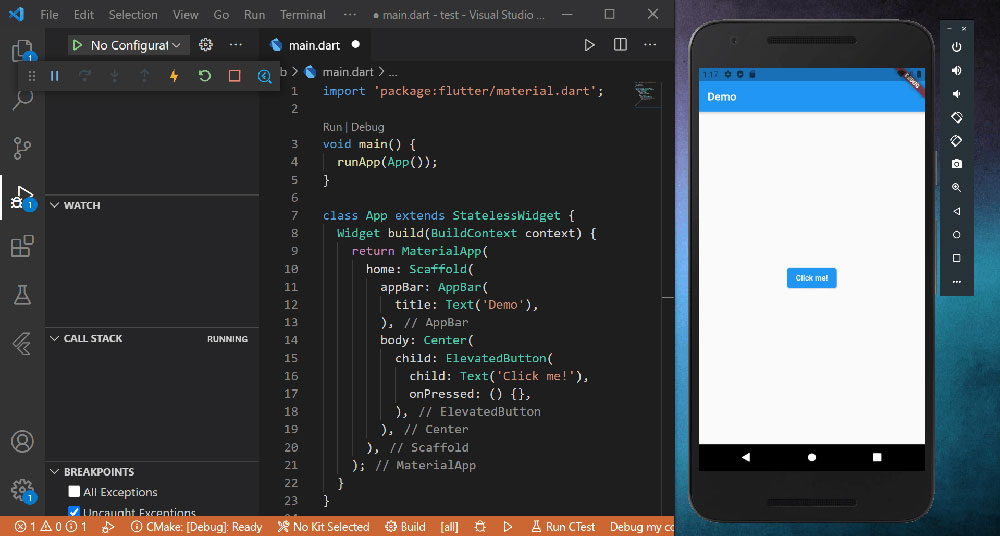Imagine sculpting your next digital masterpiece, the click-clack of keys as your brushstrokes. Your canvas? Code. Your palette? The best IDE for Ruby. It’s more than just a toolbox—it’s the very space where creativity meets logic in a dance of development.
Now, I’ve tread the paths of Ruby’s valleys and peaks—coding isn’t just about writing; it’s about crafting. And every craftsman knows that the value of their work is only as good as their tools.
This isn’t just an article; it’s a tour through the elite workshops of Ruby programmers. By the end of this journey, you’ll not only uncover which Integrated Development Environment fits your grip but also learn how these digital workbenches can elevate your code to software development artistry.
We’ll delve into ecosystems that breathe syntax highlighting life into scripts and debug your darkest dilemmas—the ones that decide if a product gleams like a polished gem or falls flat in a world where details are supreme.
Ready to find your perfect coding ally? Let’s code our way through this.
List of The Best IDE for Ruby
| IDE Name | Platform Integration | Key Feature | Multi-Language Support | Plugin Extensibility |
|---|---|---|---|---|
| RubyMine | Rails | Intelligent Coding Assist | Yes | Yes |
| Aptana Studio | Eclipse | Strong Git Integration | Yes | Yes |
| VIM | Terminal | Mouse-free Navigation | Yes | Yes |
| Cloud9 | AWS | Real-time Collaboration | Yes | Limited |
| VS Code Editor | General | Extensive Marketplace | Yes | Yes |
| Sublime Text | General | “Goto Anything” Feature | Yes | Yes |
| Emacs | Terminal | Total Customization | Yes | Yes |
| Arcadia | .NET | .NET Integration | No | No |
| NetBeans | General | Effective Project Management | Yes | Yes |
| Komodo | General | Multi-Language Support | Yes | Yes |
And let’s look at them in more detail.
RubyMine

A jetpack for Ruby enthusiasts. RubyMine is a JetBrains masterpiece that really digs into the Ruby landscape. It feels like it reads your mind with code autocomplete and on-the-fly analysis. The interface? Smooth. The tools? Sharper than a sushi chef’s knife.
Best Features:
- Intelligent code editor
- Rail-specific project support
- VCS integration
What we like about it: The debugger—it’s like having a superpower. You can swoop in and sort out code issues like a boss.
Aptana Studio

Aptana Studio marches in with a robust setup that’s all about web development. Built on Eclipse, it’s familiar, yet fresh. The customization level? Sky high. Mix in some Ruby or Rails and you’re sailing on smooth digital seas.
Best Features:
- Customizable UI
- Built-in terminal
- Strong Git integration
What we like about it: It’s like the Swiss army knife of IDEs—especially for web design with Ruby on Rails.
VIM

VIM’s like that old school mixtape—no frills, just skill. It’s all about being lightweight and efficient. You’ll need to tinker around to make it Ruby-ready, but once you do, it’s blazingly productive.
Best Features:
- Mouse-free navigation
- Extensive plugin system
- Customizable to the core
What we like about it: The smooth workflow once you’ve mastered the shortcuts—it turns coding into a quick-step dance.
Cloud9

Coding on Cloud9 is… well, you know. It brings your Ruby development into the browser with a slick cloud-based IDE. Collaboration? Real-time and effortless. Plus, it’s got a direct pipeline to AWS services.
Best Features:
- Real-time pair programming
- Preconfigured environments
- Direct AWS integrations
What we like about it: Coding with pals in real-time—it doesn’t get cooler than this for remote work.
VS Code editor

VS Code editor is the hip new club everyone’s talking about. It’s modern, it’s fast, and it’s got extensions for days. The Ruby support? Just a plugin away.
Best Features:
- Extensive plugin marketplace
- Git commands built-in
- Highly customizable
What we like about it: The unbeatable combo of performance and customization—like a race car you can repaint anytime.
Sublime text

Sublime Text is poetic simplicity wrapped in a powerhouse package. It’s quick, it’s nimble, and with your extra Ruby plugin, it sings. The ‘Goto Anything’ feature? A teleportation device for your codebase.
Best Features:
- Lightning-fast speed
- Command palette
- Multiple selections for simultaneous editing
What we like about it: The sleek performance; it’s coding with no roadblocks, just open highway.
Emacs

Emacs is for the hardcore—it’s like learning a language that lets you talk directly to your code. Configurable, adaptable, and with Ruby mode on, kind of magical.
Best Features:
- Comprehensive documentation
- Customizable with Lisp code
- Complete control over the environment
What we like about it: The total customization—it’s basically coding inside a Transformer. Make it whatever you need it to be.
Arcadia

Arcadia swings in for those loving the tight integration of Ruby with .NET. It’s a bit niche, but if that’s your scene, it’s a slick sidekick.
Best Features:
- Tight .NET framework integration
- Lightweight and streamlined
- Ruby standard library support
What we like about it: The niche specialization—like finding that perfect-fitting glove for niche .NET projects.
NetBeans

NetBeans spreads its wings over various languages but gets cozy with Ruby once you set it up. It’s got a sturdy scaffold and shines with project management.
Best Features:
- Effective project management
- Extensible platform
- Solid plugin ecosystem
What we like about it: The neat organization—it’s like having a personal assistant for your code.
Komodo

Komodo’s walking on the wild side of things, blending powerful functionality with a sleek design. You’ve got multi-language support with a sweet spot for Ruby.
Best Features:
- Multi-language support
- Code intelligence
- Advanced editing features
What we like about it: It’s the jack of all trades, master of ‘enough’—a versatile partner for your coding journey.
FAQ on The Best IDE for Ruby
What’s the top IDE for Ruby that experts recommend?
Well, you hear a lot of buzz about JetBrains RubyMine for its robust features. Dedicated to Ruby, it’s got smart coding assistance, advanced debugging, and works with Rails like a dream. Highly intuitive, it’s a solid pick among pros.
How does Visual Studio Code stack up for Ruby development?
Visual Studio Code is a champ for many. Lightweight yet powerful, it’s flexed up with extensions for Ruby. Autocomplete, debugging, it’s got the works. Plus, it’s free and open-source, making it a staple choice for Rubyists on the grind.
Is there a free IDE that’s good for Ruby?
Atom shines bright here. While technically a text editor, it transforms into a pretty decent IDE with the right packages. Think autocomplete, file system browser, code navigation—all without spending a dime. Community-driven and customizable, it’s a thrifty coder’s friend.
Does an IDE like Eclipse make sense for Ruby?
Absolutely, with the apt plugin—Aptana Studio is a go. It’s built on Eclipse, geared for web development and yes, it’s familiar ground if you’re coming from other languages. It’s pretty feature-rich and the transition for a Java dev, for instance, is super smooth.
Can beginners easily set up an environment in Komodo IDE for Ruby?
For rookies looking to cut their teeth, Komodo IDE does play nice. It’s all about easing into things, with a helpful setup wizard and a user-friendly interface. Plus, it supports multiple languages, so it’s like investing in a Swiss Army knife—good for the long run.
What IDE features are crucial for Ruby on Rails development?
When Rails is your game, you’ll want a superb code editor, seamless version control, and real-time error detection. Look for first-rate debugging, database support, and a smooth way to manage all your gems. It’s tech wizardry that should feel almost magical.
Is there an IDE that excels in Ruby code refactoring?
RubyMine again takes the throne here. It’s almost surgical with its refactoring capabilities. Renaming, extracting methods, introducing variables—it’s all about making code cleaner and more efficient. JetBrains really tuned RubyMine to the frequency of Ruby’s heart.
How do Sublime Text’s features benefit Ruby developers?
Sublime Text’s snappy performance is like a breath of fresh air. It’s not just about being lightweight—it’s the rapid search, multifile editing, and vast array of plugins. It turns the mundane into the slick and swift. A text editor on fire, really.
Can NetBeans be optimized for Ruby?
While not out-of-the-box ready for Ruby, with a bit of setup, NetBeans becomes a hidden gem. It requires some plugin magic to get the Ruby support going, but once you’re there, you’ve got a powerful ally with great project management features and a smooth development workflow.
Is Ruby support in Aptana Studio on par with other IDEs?
Aptana Studio packs a punch with its comprehensive Ruby and Rails support. Built-in terminal, Git integration, and Rails-specific project structure—it gives you a robust environment tailored to Ruby development. A sturdy choice for both newcomers and seasoned devs in the Ruby realm.
Conclusion
Winding down this code quest, it’s clear that the best IDE for Ruby boils down to how you mesh with the tool—the feel, the flow, the features that click with your brainwaves. It’s like finding that perfect pair of headphones; ones that cancel noise and let the beats of productivity blast.
- Visual Studio Code: For the developers craving versatility without cost.
- Atom: When customization is your jam.
- RubyMine: Rolling deep with features for the Ruby pro looking to refactor and railroad with finesse.
The digital playground is vast, with each IDE wielding its own magic wand—just waiting to cast spells of syntax highlighting, advanced debugging, or seamless version control. So, skip the guesswork, trust the journey you just embarked on, and pick that piece of tech-wizardry that’ll make your Ruby code sing.
Remember, it’s not just about what they bring to the table—it’s about how they amplify your coding symphony. And with that, the path to Ruby greatness is all yours. Choose your champion and let the creation begin.
If you liked this article about the best IDE for Ruby, you should check out this article about the best IDE for Golang.
There are also similar articles discussing the best IDE for Linux, the best IDE for PHP, the best IDE for Rust, and the best IDE for Scala.
And let’s not forget about articles on the best IDE for TypeScript, the best IDE for Angular, the best IDE for React, and the best IDE for Android.
- Design’s Descent: What Happened to Fab? - April 19, 2024
- Design Basics: iPhone App Icon Size Requirements - April 19, 2024
- Quick Guide For Developing Mobile Games - April 18, 2024








